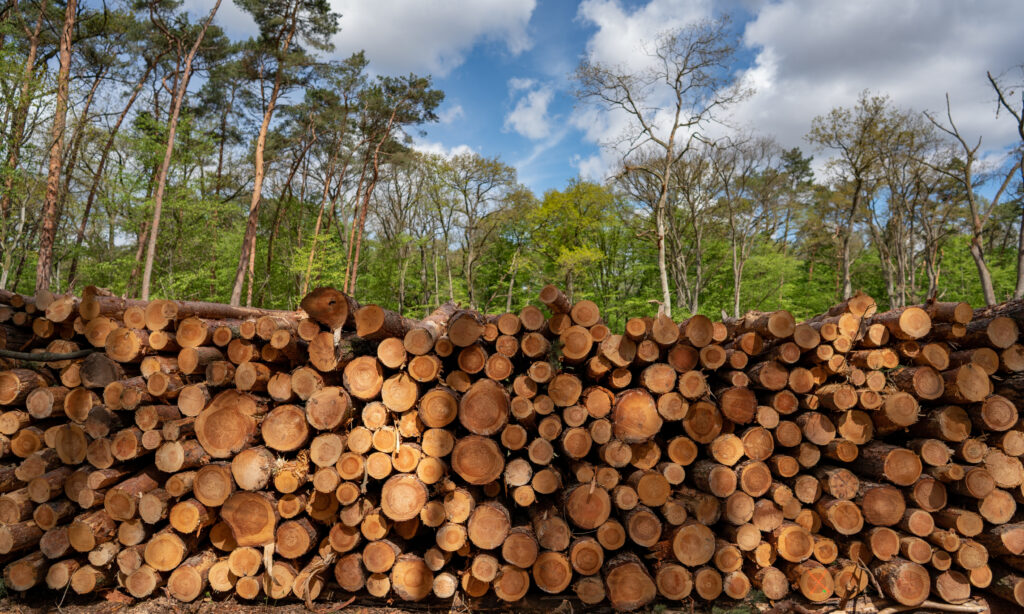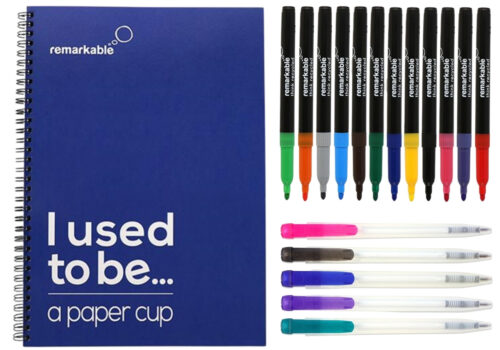
The world is becoming increasingly digitised and, sometimes, it can feel like paper is becoming a thing of the past.
However, paper production still causes huge amounts of deforestation even to this day. Not only that, but it also contributes to air pollution and waste problems, and uses vast amounts of water and energy.
In fact, the pulp and paper industry is one of the largest industrial sectors in the entire world, including products such as office and catalogue paper, glossy paper, and paper-based packaging.
It is responsible for 40% of all industrial wood traded worldwide and, because of this, it has an enormous influence over our forests.
Globally, 386 million hectares of forest were lost from 2001 to 2019, an almost 10% decrease in tree cover since 2000, and the use of paper plays a major role in this.
Paper isn’t just responsible for deforestation either; it also comes with a hefty carbon footprint. This is because trees store carbon dioxide, which is then released when they are cut down.
The production process, which involves turning the wood into pulp, is no better, using large amounts of both energy and water.
This, of course, contributes to global warming, with an estimated 23% of all man-made carbon dioxide emissions resulting from the loss of forests. That is more than the amount created by all the cars and lorries on our roads.
Throughout the vast majority of human history, paper was made much more sustainability using rags, hemp, grasses, and stone mortars. However, this changed in the 1800s during the industrial revolution as literacy rates and the demand for paper both rose dramatically.

Deforestation also affects the considerable array of insects, birds, mammals, reptiles, amphibians, and other plants that live in, and depend upon, forests.
Pulp and paper deforestation practices have a particularly harsh effect on some of the world’s most ecologically important places, rainforests, and the species that live in them.
According to the WWF’s Living Planet report, the current levels of deforestation make the species living in our rainforests some of the most endangered in the world.
Not only that, but unsustainable pulp and paper operations can also contribute to illegal harvesting, human rights issues, and social conflicts.
So, what can we do to solve this problem?
The good news is that everyone can be a part of the solution simply by cutting down on the amount of paper they use.
Nowadays, computers have made this much easier, but people use paper around their house in ways they might not think of. This can be everything from paper towels in your kitchen (try using a washable cloth instead) to toilet roll, which we’ve talked about previously.
Despite being recyclable, paper also makes up 23% of total global landfill waste, so make sure to recycle any paper you do have and encourage others to do so too.
Of course, it’s still not always possible to go entirely paper-free, and many of us still need access to pens, pencils, and paper, even if it’s just for work.
Thankfully, paper products can be made more sustainable through the way the trees are cut down and replanted, the soil is used, and the pulp is processed.
Many pulp and paper operations will plant fast growing monocultures (only one type of tree) which can have a devastating impact on the environment.
The forest fires in Portugal over the last few years, for example, were primarily caused by the planting and mismanagement of Eucalyptus trees. These are fast-growing and great for making wood pulp, but they greatly reduce biodiversity and are flammable due to their natural oils.
Sustainable forestry, on the other hand, includes the proper management, reforestation, growth, and nurturing of the forests. Standards for this practice were even set all the way back in 1992 at the United Nations Conference on Environment and Development.
When done responsibly, pulp harvesting can benefit both forests and the local communities that live around them.
Many pulp and paper companies are even beginning to adopt these practices, especially as more consumers are beginning to make more environmentally conscious purchases.

If you’re looking for a more sustainable stationery option, Play it Green recommends ‘Remarkable’.
Remarkable are sustainability veterans, starting their journey way back in the ‘90s, and have previously won awards for Environmental Company of the Year and Recycled Product of the Year.
They not only help reduce deforestation but also reduce waste by turning old junk into brand new notepads, pens, and pencils.
Discarded coffee cups, for example, can be made into brand new notebooks with Remarkable collecting the paper, cleaning out the contamination, then processing it back it to be printed and bound together.
They also make ballpoint pens from 100% plant material meaning they are completely biodegradable.
All of their products tell their history proudly, with pens that say they used to be car parts and notepads that say they used to be newspapers, magazines, or drink bottles.
This way, everybody can see and be inspired to make a positive, sustainable change in their life.
You can also use discount code XZVT6CEZJCRV to save a little money on your order.